Gastroenterology for adults
Digestion is a very important and at the same time a complicated process in the human body that provides us with all we need: from vitamins and microelements to any vital substances. Besides, digestion plays an important role in freeing us from all that is redundant.
Many organs participate in digestion:
- esophagus;
- stomach;
- pancreas;
- liver;
- gallbladder;
- biliary tracts;
- intestine (small and large intestine).
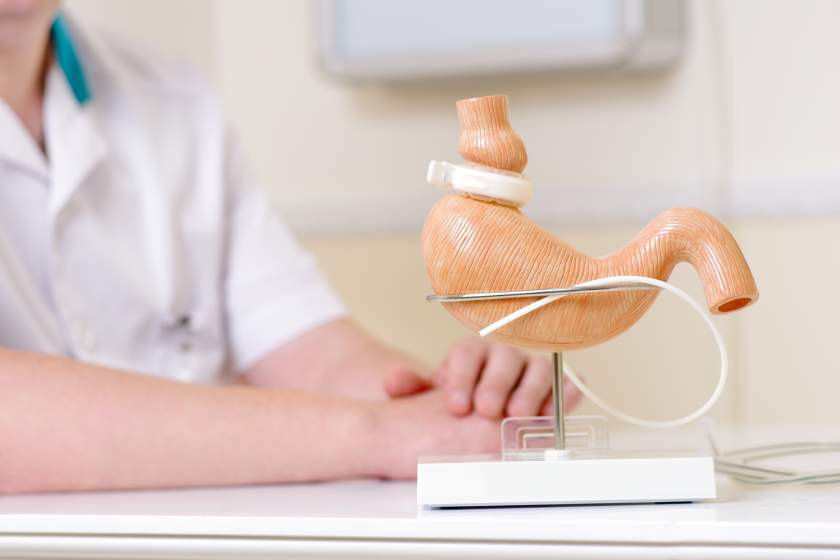
Wellbeing and health of a human depend on flawless, consistent and correct functioning of all these organs. Malnutrition and stresses, bad environmental conditions and other factors influence on the digestive system functioning. Sometimes slight temporary malfunctions happen, but if they are frequent, the process becomes chronic, and a grave disease can develop that will influence on the quality of life.
Gastroenterologists work in the area of prevention of gastrointestinal diseases, diagnostics and treatment of gastrointestinal problems.
Gastroenterology services for adults in Dobrobut:
The main diseases of the digestive system treated by the gastroenterologists of Dobrobut clinic chain are:
- gallbladder diseases;
- bowel diseases;
- liver diseases;
- pancreatic diseases;
- bileduct diseases;
- small and large intestine diseases;
- esophagus diseases;
- stomach diseases;
- duodenal diseases;
- rectal diseases.
When you should visit a gastroenterologist
Many gastrointestinal diseases manifest with slight symptoms that do not bother a patient a lot. However, ignoring of certain symptoms can inform about serious health problems.
- abdominal pain;
- epigastric burning;
- abdominal distention;
- intestinal obstruction or diarrhea;
- difficulties when swallowing;
- nausea, vomiting;
- feeling of partially void bowels;
- absence of appetite;
- abrupt weight loss;
- blood in stool.
Gastroenterologists of Dobrobut clinic chain work in the area of diagnostics, treatment and prevention of gastrointestinal diseases using modern methods of evidence-based medicine. More than 100 patients a day visit our gastroenterologists in Dobrobut clinics. Gastroenterologists, endoscopists, surgical service work in this sector.
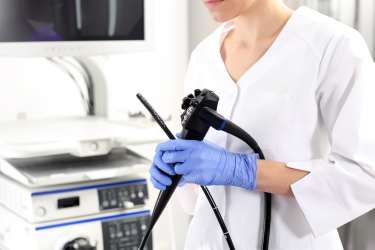
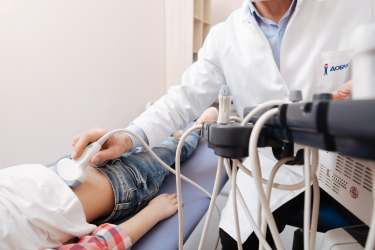

Diagnostics in gastroenterology
Dobrobut clinic chain has the complete modern technological base to run quality medical examinations, from labs to endoscopy with the possibility of the detailed study of the mucous coat of stomach, esophagus and duodenum. Our specialists also successfully undertake such medical procedures as removal of polyps and ultrasound examination with elastography of liver, CT and MRI.
Instrumental diagnostics
There are many instrumental techniques for abdominal organs diagnostics. A doctor determines the advisability of use of examination techniques during the consultation.
The following techniques are used for diagnostics of gastroenterological diseases:
- Elastography
- Endoscopy
- CT of abdominal organs for adults
- Abdominal ultrasound
- MRI of abdominal organs for adults
You can undergo all the diagnostic procedures in the state of medication sleep. By contrast with the general anesthesia, this state is very close to the normal physiologic sleep. While a patient has a rest in such a state, a doctor receives all the information necessary for building of the following strategy of health care or treatme
Laboratory diagnostics
Laboratory diagnostics of gastrointestinal diseases include blood, urine, stool tests and is an indispensable part of the examination for diagnostics of gastroenterological diseases.
Laboratory diagnostics is prescribed to determine or to specify a diagnosis, to reveal the causes of the disease, and also to determine the effectiveness of therapy. Laboratory abnormalities allow to suspect the development of complications and perform a follow-up examination of the patient’s condition. Usually, laboratory test results better show the condition of a patient than his or her general state.
To determine the treatment correctly, a gastroenterologist can prescribe the following laboratory tests:
- clinical blood analysis;
- blood test for parasitic infections;
- clinical urine analysis;
- coprogram (common stool test) + bacterial stool inoculation for intestinal flora;
- blood chemistry (liver panel, lipid panel, HOMA index, coagulogram, etc.);
- immunologic screen including diagnostics of Helicobacter infection, infectious and autoimmune hepatitis, detection of food intolerance, inflammatory bowel diseases.
Gastroenterological unit of Dobrobut clinic chain means:
- full range of diagnostics and treatment of the broad spectrum of gastroenterological diseases;
- quality histopathological examination;
- early diagnostics of oncological diseases of gastrointestinal tract;
- expert-level endoscopic equipment that allows to perform more fundamental tests and not to miss neoformations;
- a unified information database about the client;
- Dobrobut clinic chain doctors created package programs of patients’ examinations: “Weight control” checkup and “Screening for colon cancer”;
- the treatment is performed according to international protocols and European recommendations only;
- individual approach and comfortable conditions for every patient.
Our advantages
Our service packages
Our gastroenterologists
Choose the nearest clinic
ISO certificates
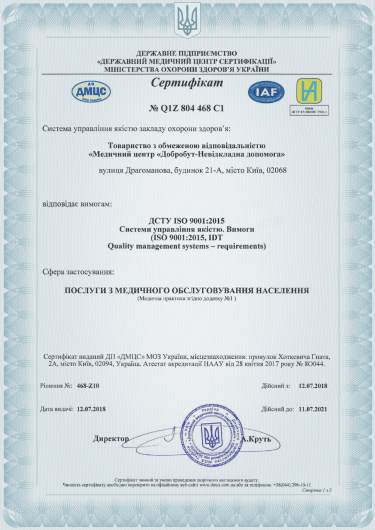
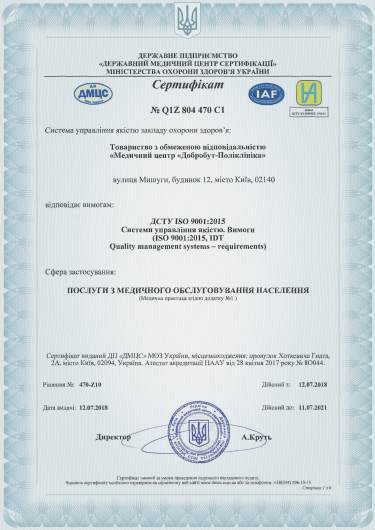
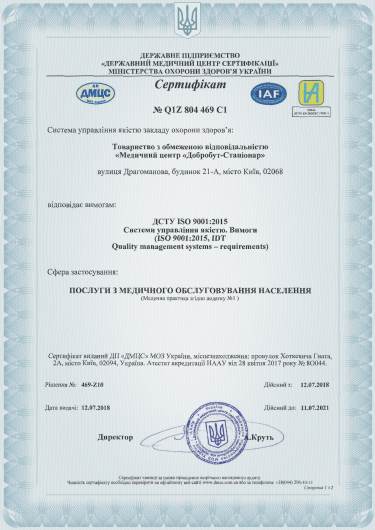
Accreditation certificates
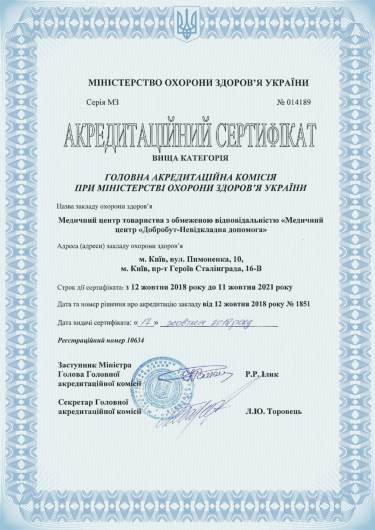
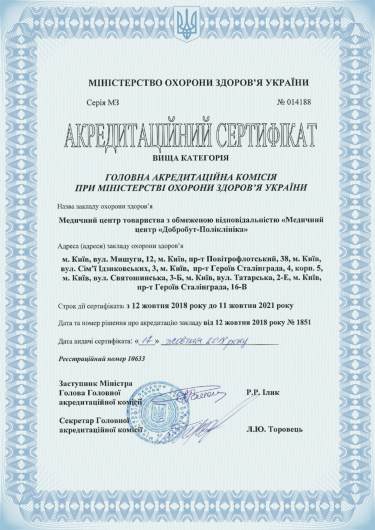
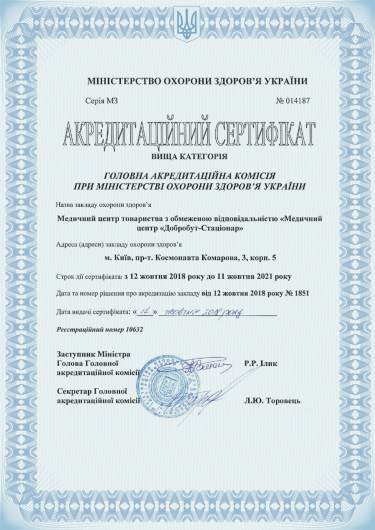
Medical practice licenses
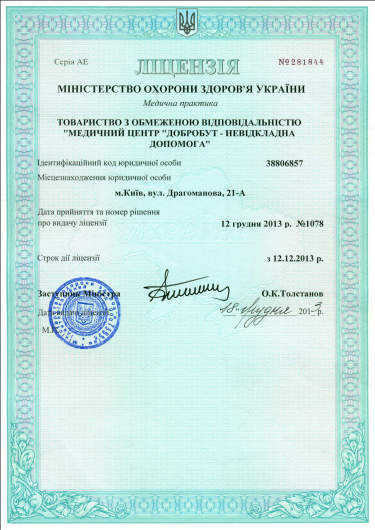
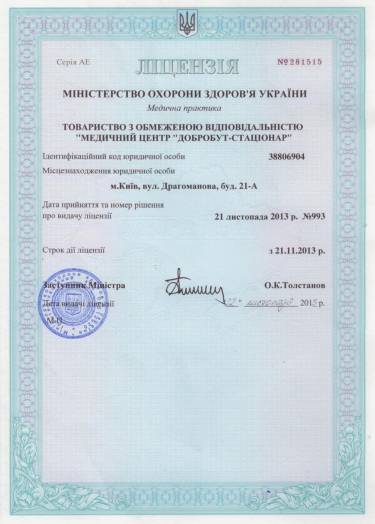
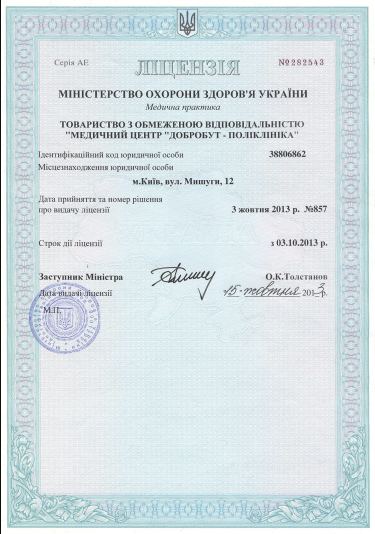
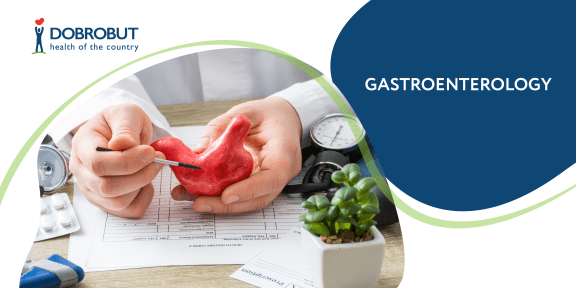





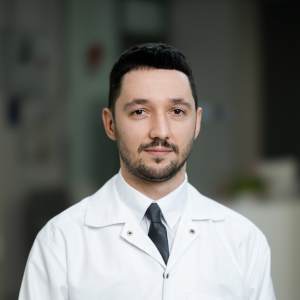
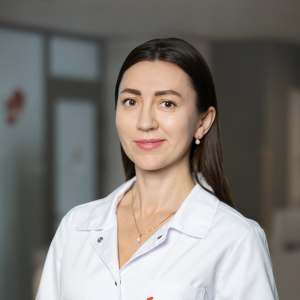












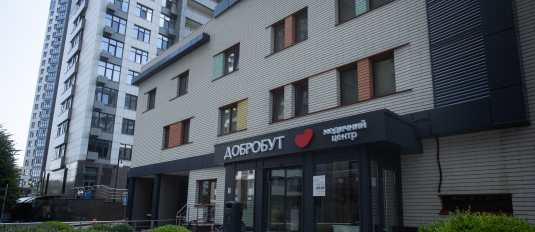



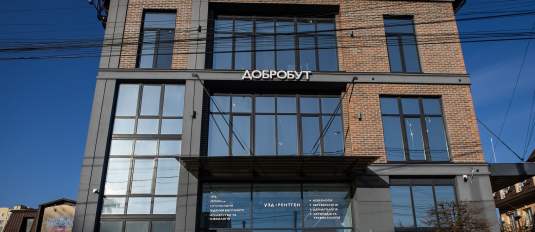
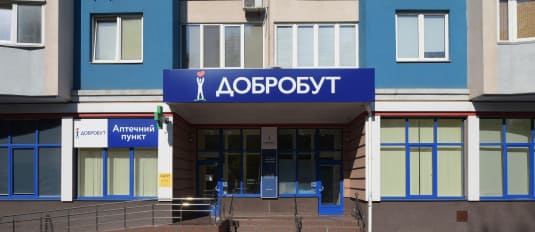
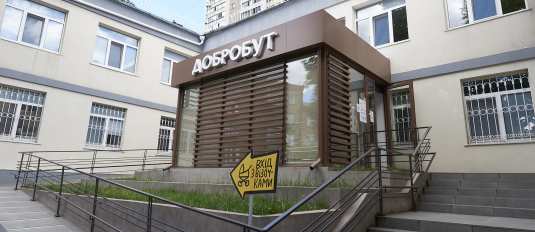








%402x.png)
%402x.png)
